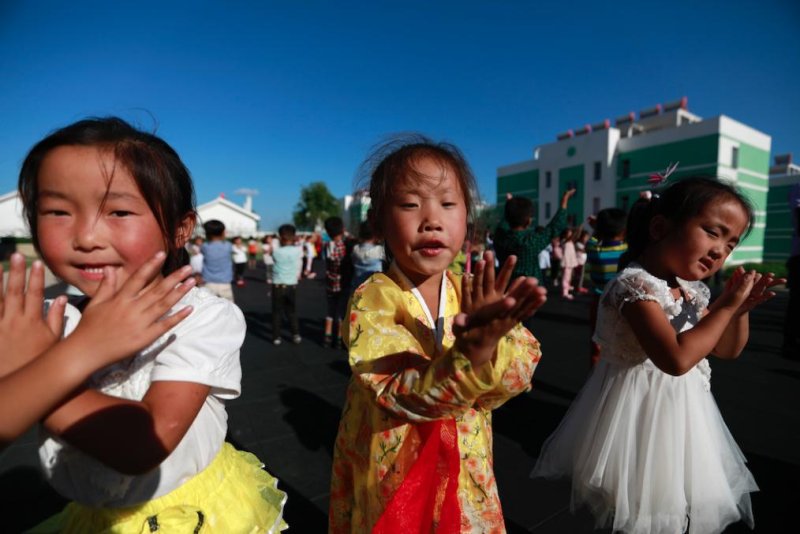North Korean children dance in a kindergarten during a media tour outside Pyongyang in September. South Korea is expanding resources for North Koreans who are resettling in the country. File Photo by How Hwee Young/EPA-EFE
Feb. 1 (UPI) -- The South Korean government is doubling the budget for "short-term training" for North Korean refugees, as the population reaches a new high and critics have said they are being left unprepared for life in the South.
Seoul's unification ministry said Friday a 2019 plan for resettlement support was finalized, Seoul Pyongyang News reported.
North Korean defectors are typically received and processed at Hanawon, a detention center in the South where the new arrivals are interviewed, then trained for life in society. But refugees also experience higher than average rates of unemployment and struggle with debt, sometimes because of money owed to brokers.
The new South Korean policy will be implemented among 20 government departments and three regional organizations.
The plans cover the creation of more jobs for resettled North Koreans, education and training support, protection of "vulnerable" defectors and programs for "social integration," according to the report.
Funds set up specifically for short-term training will be doubled from about an annual budget of $220,000 to $470,000, and training will be focused on linking skills to available jobs.
School age North Koreans will also have a greater number of pre-college courses available that will better prepare them for coursework at the university level. More South Korean schools will be staffed by North Korean student-specialized instructors, the report states.
A lump sum resettlement award that all qualified defectors receive from the government will also increase by about $1,000. Defectors who were previously unqualified for housing assistance because of long-term stays in a third country, or applying for assistance past a three-year deadline, are now eligible for support.
North Korean defectors often leave their country owing to poverty, and economic conditions are factoring into U.S. policy toward Pyongyang.
U.S. Special Representative for North Korea Stephen Biegun said Thursday at Stanford University the Trump administration wants to explore ways to improve the North Korean economy with investments along with denuclearization.
President Donald Trump has said a second summit with Kim Jong Un is to take place before the end of February.















